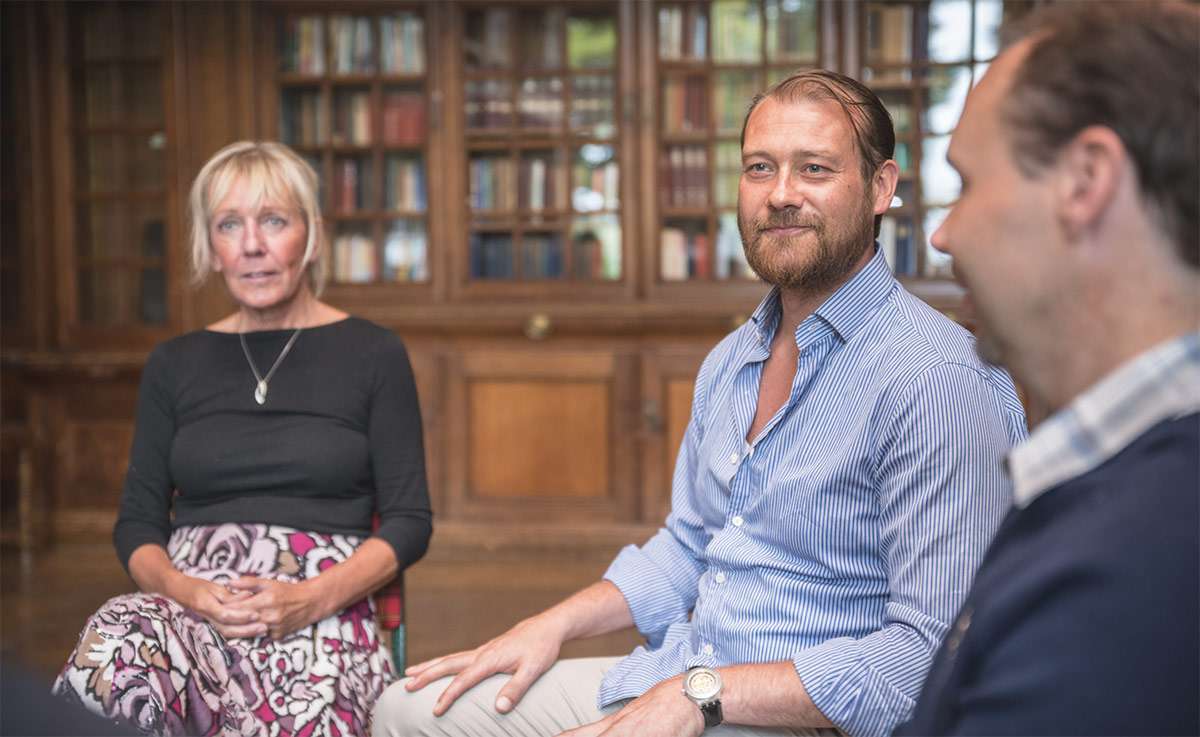Patient experience in a drug rehab
This article will give you insight of a patient experience of residential rehab. From initial anxieties and concerns to explaining how new routines have helped… If you’re trying to decide whether an inpatient rehab clinic is the right choice for you then read on…
This interview was done on Tuesday, July 24th with a patient who prefers to remain anonymous.
At the time of writing, she had completed 6 weeks in the intensive care unit and was in the process of being transferred to extended care.
Choosing a Rehab Centre
Did you do any research on Castle Craig before coming?
“Yes, yes I did. I went on the internet. I had actually listened to recovery stories of previous patients when they had been here. And so on the day I arrived, this lady, her family had just dropped her off and drove off. Well obviously they must have planned it, but she didn’t know and they just dropped her off. She says it was the best thing that has ever happened to her. So that was a positive story.”
How did you feel when you first arrived here at Castle Craig?
“I was really excited, a bit apprehensive because I didn’t know what I was going to be getting myself into. I didn’t know anyone but when I got here everyone was really friendly. At first I felt like a rabbit among the headlights, you don’t know what you’re doing. Everyone was really helpful and friendly, showed us around. And then by the nighttime I felt at ease. I didn’t sleep very much the first night because a lot of things were going through my head. But the next day I felt great and I am really pleased that I’ve done it.”
Did you have any fears before you came, about inpatient rehabilitation?
“No, I didn’t know what to expect. I had a clear open mind when I was coming and I was just ready to take anything on. Anything that would help to recover.”
What Is one of the first things that you thought of when you got here?
“I had done a lot of research about the activities and the schedule, but I wasn’t too sure about the work. About, you know the steps, it’s the first I knew about steps to be completely honest. But I’ve worked them quite well. Now I’ve just finished my step four and I’m going to ECU (Extended Care Unit). So I’ve been here six weeks now, but I feel great. I feel ready for a new chapter in my life and I’m really ready to go to ECU. I’m getting that feeling of excitement again and apprehension, about. But it’s what’s to be expected, it’s going to be totally different. I’m ready for it.
What do you do in rehab?
A lot of people don’t actually know what happens in rehab. What does a typical day look like for you?
“Early morning we do meditation at 07:30, and then breakfast at 08:00, and women’s group after that at 10:30. We have a lecture at 13:00 and then we can do special therapies.”
And what do you enjoy the most?
“I enjoy all the therapies and activities. They help me keep my mind occupied. I’m constantly doing something including my step work and reading the literature that the therapists give you. So my day is quite busy and I get additional time to read my books as well because I like reading. That’s my hobby, reading.”
Is there anything that you felt you were unprepared for when you got here?
“I wasn’t prepared for the step work.
Initially, I thought I would have a room on my own, so I was a bit scared about that when I found out I would be sharing with three other girls. But once my first night was over, it was absolutely fine.
I am so pleased that I ended up sharing with people. Because you get to know people more, their stories, their backgrounds and what they’ve gone through. And the similarities of the stories amongst the addicts is so real and true. It’s like what happened to me has happened to so many others.
Well, I actually thought it was only me it was happening to. So it’s much better sharing a room.”
How Does Rehab Work?
Interviewer: What is inpatient rehab like?
Interviewee: “For me, inpatient rehab has been the best thing because I couldn’t have done it on my own – Because I tried to do it on my own. So because I’ve been here it’s helped with my sobriety and to keep focused on recovery, so for me it’s been the best thing.”
Interviewer: How was the detox process for you?
Interviewee: “Because before I came, we started on a reduction plan with the alcohol. So I had gone initially from the bottle of vodka, drinking it neat. Because I had been hospitalized four times and detoxed four times, then I stopped drinking vodka and went onto three bottles of white wine at 13%.
And then before I came, I was down to a half bottle at 10% of wine a day. So I’ve really reduced. I just feel great for it.”
Interviewer: What’s impacted you the most?
Interviewee: “The people’s life stories, really, it was very emotional listening to people’s life stories. Because you are sitting next to somebody who you don’t know. And they’re trusting you with, basically their life.
They are telling you what happened in their life and it’s with everybody in the group, you get to know your fellow peers. Even in the nighttime when you’re just sitting around talking And you start talking about stories, of what you’ve done and what’s happened in your life.
I won’t say I’ve enjoyed the life stories but it’s one of the things I wasn’t expecting, to have to share your life story. So that was intriguing. And also the interaction from the other peers, outside of the groups because you tend to get to know a bit more about them when you are sitting in a conversation with a group of ya.
Interviewer: How did you feel about sharing your life story?
Interviewee:”I was really nervous, really everyone is I suppose. But once you start, it’s fine. I wasn’t going to cry but I did. And everybody does nearly so, but you do feel like a weight has been lifted once everyone gets to know you more.
It’s the fact that you are coming into a place where you don’t know anybody at all and you are sitting with a group of people who you’ve never met in your life, and you’re having to share your life story with them. It’s a bit daunting but once you do it, it’s fine. And for people to share what they’ve been through, it is upsetting. But it’s good to know that people have got that trust. Which is what this place brings to you.”
What Can You Bring To Rehab? And What Did You Think Of The Phone Rules?
Interviewer: What were you allowed to bring to rehab?
Interviewee: “Clothes and toiletries because everything else was provided. And they told you not to bring your mobile phone. You didn’t need a hairdryer. And basically, you’re food and medication are supplied for you, so really all I brought was my toiletries and my clothes. And a bit of money for the phone cards.”
Interviewer: Do you miss the things that you were not allowed to bring?
Interviewee: “No, I’m pleased I haven’t gotten them lately. I can concentrate more. I don’t miss my mobile phone at all.”
I Don’t Want To Go To Rehab
Interviewer: So is there any advice that you would have for people who are hesitant about taking the plunge, perhaps they are asking “should I go to rehab”?
Interviewee: “You’ve got to have it in you. If you are ready and willing to change, what you’ve got to change, go for it. If you’re not ready for change and you’ve got doubts, don’t. Don’t do it. Because I’ve seen people come in and leave.
You can tell straight away when somebody comes in just by talking to them. And because I’m so driven to change and to recover and be abstinent. You’ve got to want to do it, and if you haven’t got that passion in you. Then it’s just a waste of money and a waste of time. It’s a waste of people’s time, it’s a waste of your time.”
Interviewer: Is there anything you would want to tell people who are coming to Castle Craig?
Interviewee: “If they are dedicated then I would recommend it one hundred per cent. But if you’re not dedicated enough and you’re not ready for it. I would really say don’t waste your money and come, you’ve really gotta want it.”
“Do it. Just do it. Just as long as you are prepared and willing.
It’s fantastic, the therapists are brilliant. The peers are brilliant once you get settled in. Enjoy every minute, enjoy it. Laugh, make sure you laugh. Because laughter is the best medicine, that’s my motto anyway. And just embrace every minute, and every second and every day that you are here. And I’m just so pleased I’m here.”
For more help and information regarding Inpatient Treatment, you can contact us or request a call-back from a therapist.



